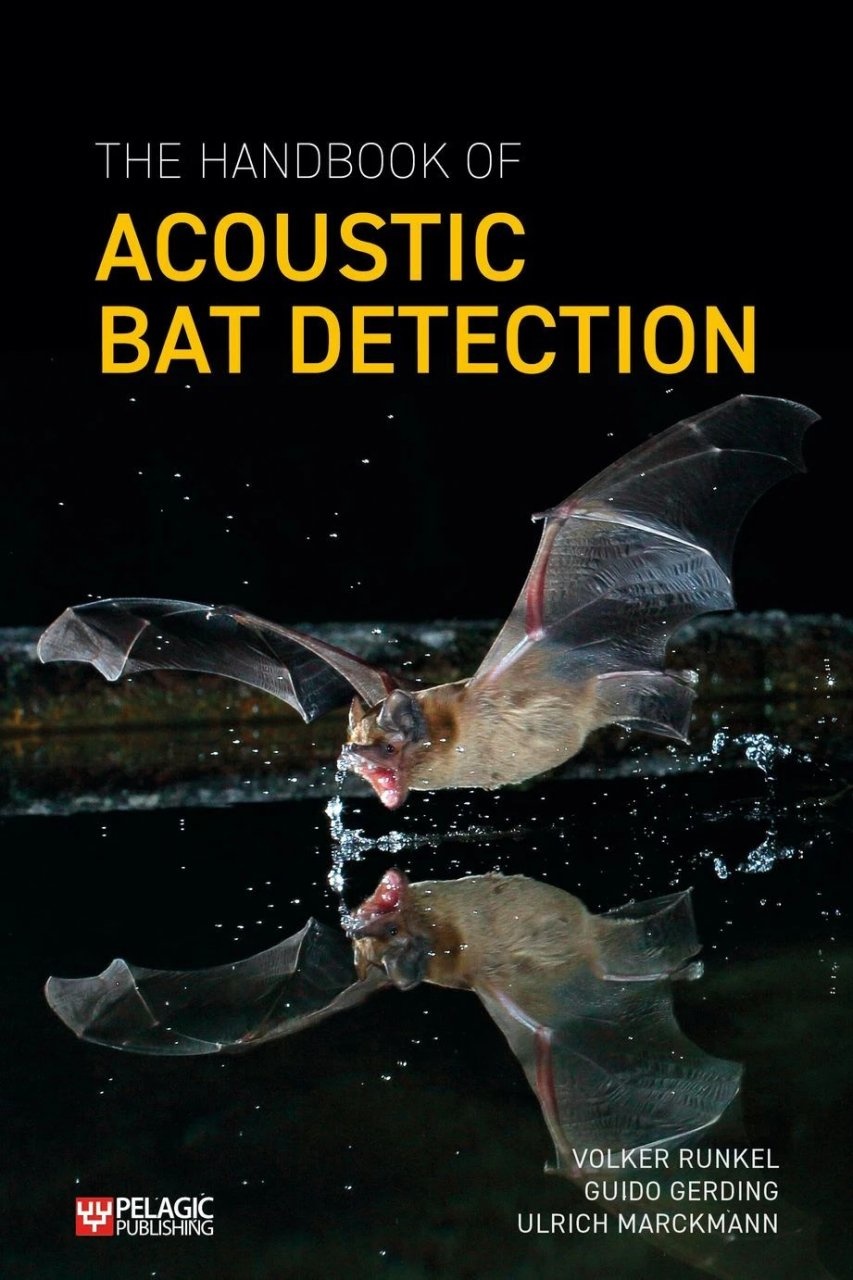




The Handbook of Acoustic Bat Detection
- Inklusive 9% MwSt.: $59.64
- Ohne MwSt: $54.72
- Versandkosten nur 7,82 € nach Deutschland
- An Werktagen vor 17 Uhr bestellt? Versand am selben Tag!
- 14 Tage Rückgaberecht
- Bei uns ist nichts unmöglich!















| Autoren | Volker Runkel, Guido Gerding & Ulrich Markmann |
| Sprache | Englisch |
| ISBN | 9781784272203 |
| Verlag | Pelagic Publishing |
| Seiten | 260 |
| Größe | 234 x 156 mm |
| Format | Taschenbuch |
| Bilder | Farbige und s/w-Illustrationen |
| Erscheinungsjahr | 2021 |
An accessible and comprehensive guide to all things acoustic bat detection. This highly illustrated handbook provides an in-depth understanding of acoustic detection principles, study planning, data handling, properties of bat calls, manual identification of species, automatic species recognition, analysis of results, quality assurance and the background physics of sound.
No other method of detecting bats is so popular and widespread in the context of environmental assessment and voluntary work as acoustic detection, and its increased use has driven the development of a large number of sophisticated devices and analytical methods. Acoustic detection has become a standard approach for establishing the presence of bats, carrying out species identification and monitoring levels of activity. The resolution, accuracy and scale with which these tasks can be done has risen dramatically with the availability of automated real-time recording.
But anyone interested in acoustic recording will quickly recognise that there are still quite a few open questions about the limits and possibilities of acoustic detection. Clear definitions of how to handle the data are usually missing, for example, and there are no clearly described activity indices. In response to the lack of thorough information on the underlying science of acoustic detection, the authors present this handbook.
Table of Contents
1 - Acoustic recording
2 - Examples of acoustic studies
3 - The planning of acoustic studies
4 - Manual and automatic acoustic recording
5 - Manual identification of species
6 - Automatic species recognition
7 - A comparison of identification methods
8 - The complexities of call analysis
9 - Criteria for detector systems
10 - Interpretation of the results
11 - Quality assurance of reports
12 - Nacelle monitoring – its benefits and its limitations
13 - Bat calls
14 - The physics of sound
Es wurden noch keine Bewertungen für dieses Produkt abgegeben..
Vervollständigen Sie Ihre Bestellung